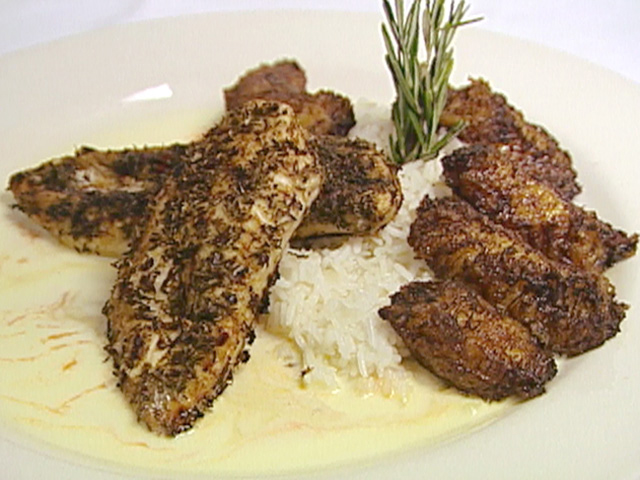


CARIBBEAN JERK CHICKEN SKIN
Much easier to do as US magazine Saveur suggests, and push the marinade right under the skin (although not too generously – I got a bit overenthusiastic and the layer of chilli purée lurking underneath one innocuous-looking thigh nearly blew a volunteer taster’s head off). She advises removing the skin to allow the marinade “to work its way right into the meat”, but, as the crisp, salty skin is one of the great joys of jerk as far as I’m concerned, I’m not keen. I like legs, but, as Lucy Pilkington, quoted in Hugh Fearnley-Whittingstall’s River Cottage Meat Book, says, a tray of drumsticks and wings works well for a big party where the chicken is going to be eaten by hand. The only thing to note here, apart from a plea to use good chicken that has enough flavour to stand up to this powerful marinade is that you need to leave the bone in for maximum taste and succulence. Indeed, I’d go as far as to say that this is the only chicken recipe you should bother with on the barbecue – there’s not much else to touch it. Pork and goat are prime candidates for jerking, but I’ve chosen chicken because if ever a dish needed livening up, it’s grilled chicken. Today, you’ll find jerk huts all over Jamaica – indeed, you’ll probably smell them before you leave the airport – but, if you’re not hopping back to the island any time soon, it’s easy to get a taste of the Caribbean in your very own garden. (The name, apparently, is the Spanish version of an Andean dialect word for dried meat, ch’arki – presumably because the original jerk would have been smoked to preserve it.) Jerk’s distinctive seasoning – hot peppers, sweet allspice berries, thyme and ginger – however, is credited to the African slaves brought to the island by its Spanish and British colonisers, who also introduced the cooking pits which were traditionally used for jerk until the advent of the modern oil drum. Native to Jamaica, the tradition began with the indigenous Taíno people who would cook their meat over fires made from the aromatic wood of the island’s allspice trees – still the only way, devotees claim, to get that really authentic flavour (no one seems to import it the UK, so I’ll have to take their word for it). Let’s face it: spicy, crisply barbecued chicken or pork are an easier sell for most of us than hard food or stew peas. I f you’re familiar with any aspect of Caribbean cuisine, then it will almost certainly be jerk.


 0 kommentar(er)
0 kommentar(er)
